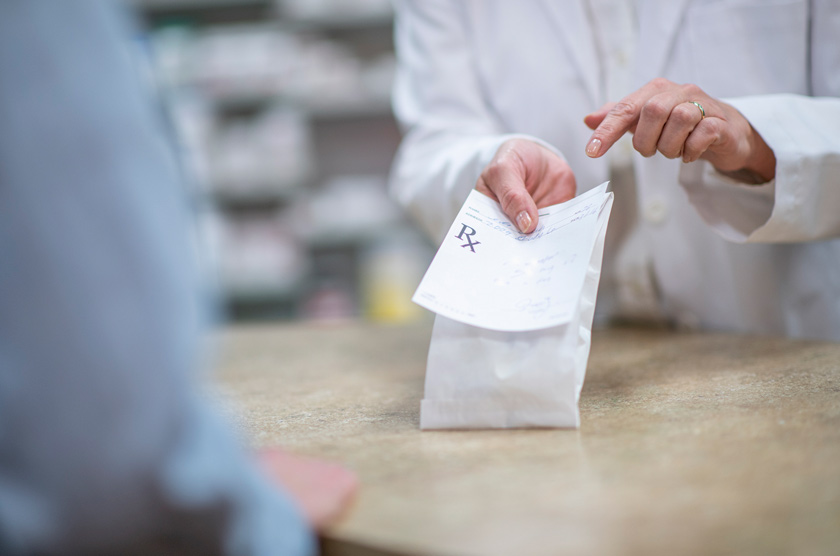Is there a skin cancer risk lurking in your medicine cabinet? Here’s what you need to know.
A 2021 Canadian study found that the use of commonly prescribed high blood pressure medications is associated with an increased risk of developing skin cancer. Our expert, Jeremy Brauer, MD, explains the findings and what you can do if you take these medications.
What is the importance of this study?
We know that the nonmelanoma skin cancers basal cell carcinoma (BCC) and squamous cell carcinoma (SCC) are the two most common cancers in North America. We also know that exposure to ultraviolet (UV) radiation is the main risk factor for skin cancer. Taking certain medications can result in a sensitization (photosensitivity) or even a toxic (phototoxicity) effect when exposed to the sun’s rays. This can result in cell damage, which may ultimately result in an increased risk of skin cancer.
This is important for people with a higher risk for skin cancer and those with a history of skin cancer. And it’s also important for people who have been taking these particular medications for a long period of time.
What do these results highlight?
The study’s results highlight that higher cumulative exposure to thiazides, a commonly prescribed class of high blood pressure medication, is associated with increased risk for BCC, SCC and melanoma in people 66 years of age and older.
It is important to note that this study excluded people with a history of skin cancer. That means that the findings are specific to individuals with no history of skin cancer.
What can people using these medications do to decrease their risk of skin cancer?
First and foremost, patients with a history of skin cancer, and those at risk of developing skin cancer, should speak with their prescribing physician and consider other antihypertensive medications.
There are other ways to reduce your skin cancer risk. First off, seek the shade. Secondly, use a broad spectrum sunscreen. And be sure to wear sun protective clothing including hats and sunglasses. Lastly, it is important for everyone to perform monthly skin self-exams, and see a dermatologist at least once a year for a full body skin exam. Anytime you see something new, changing or unusual bring it to their attention! — interview by Ali Venosa
About the Expert:
Jeremy A. Brauer, MD, is a board-certified dermatologist with fellowship training in Mohs, laser and cosmetic surgery. He is a clinical associate professor in the Ronald O. Perelman Department of Dermatology at NYU Langone Medical Center and practices in New York City and Rye, New York.





